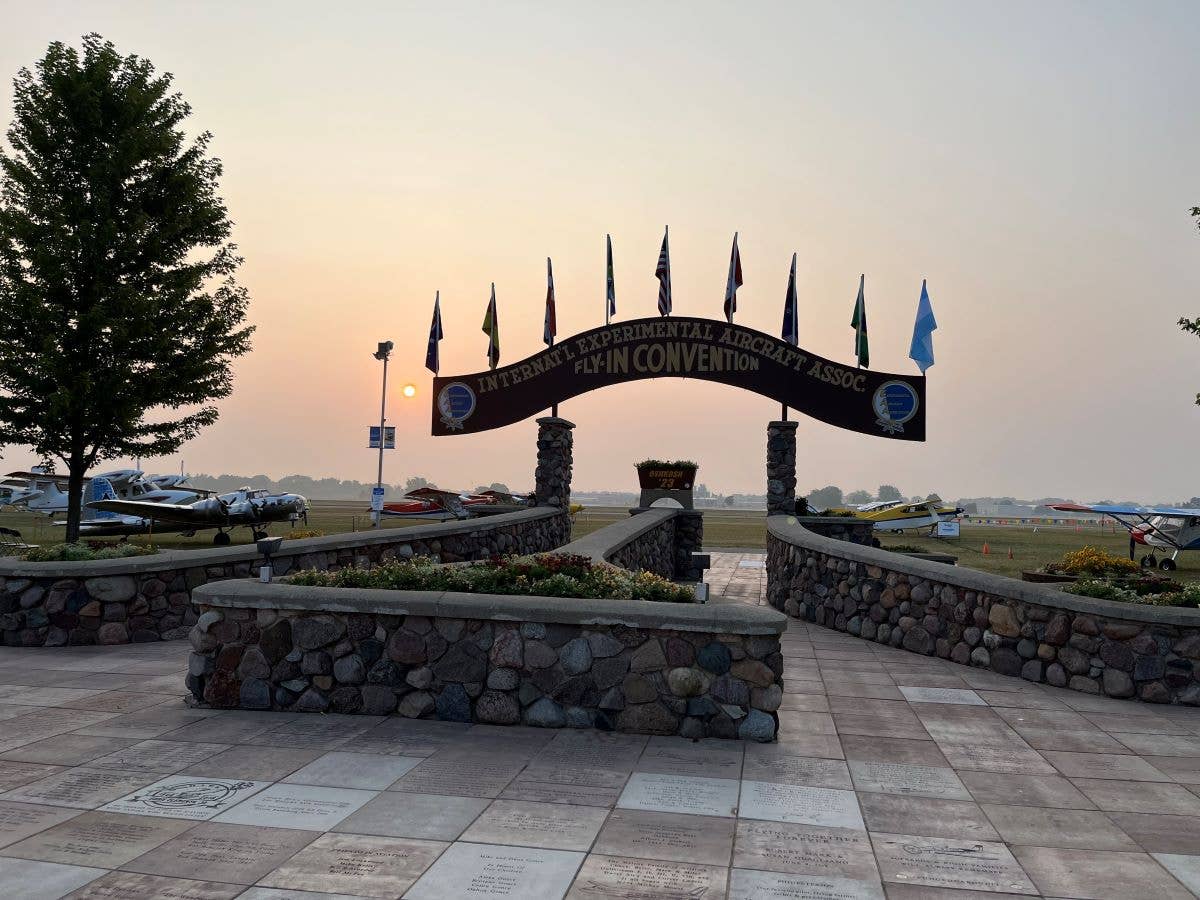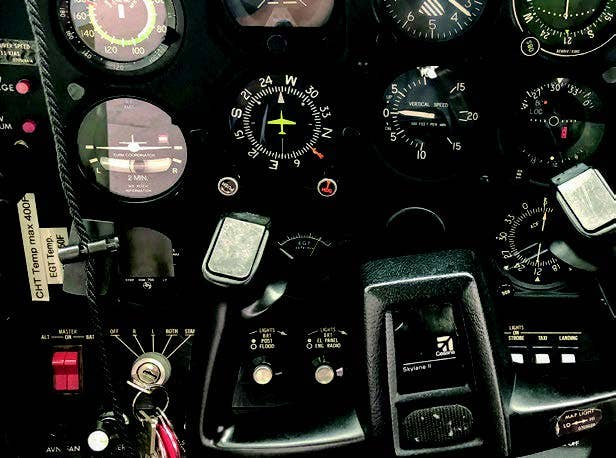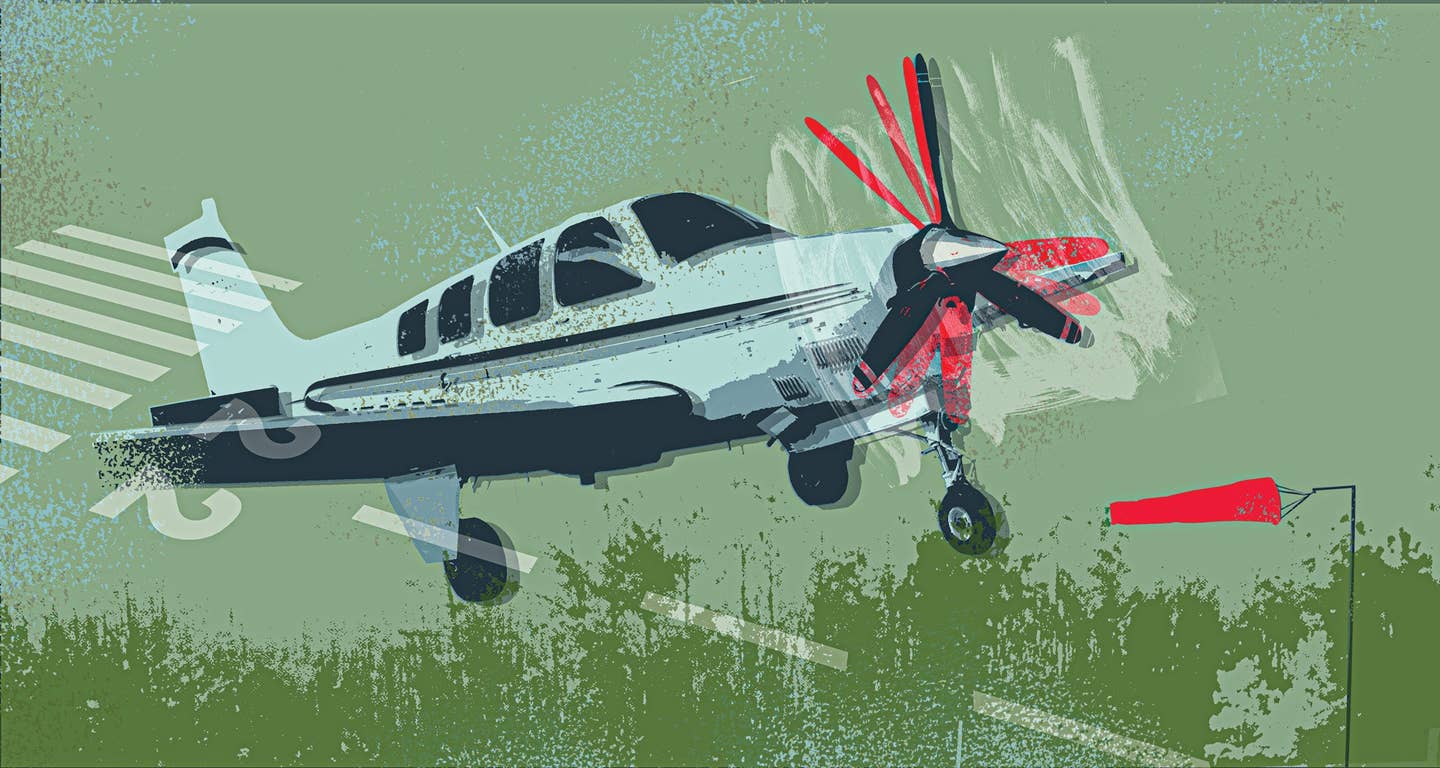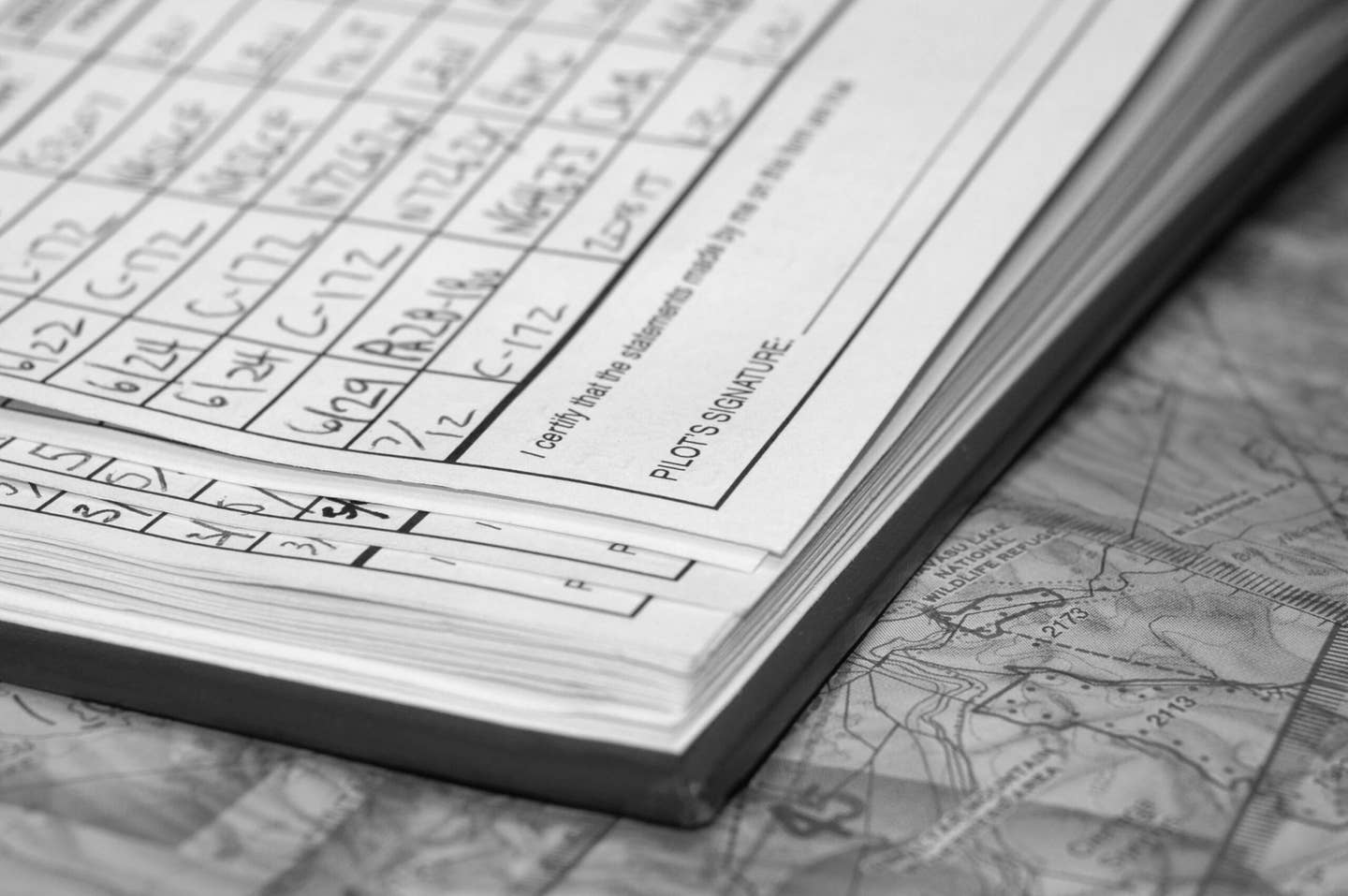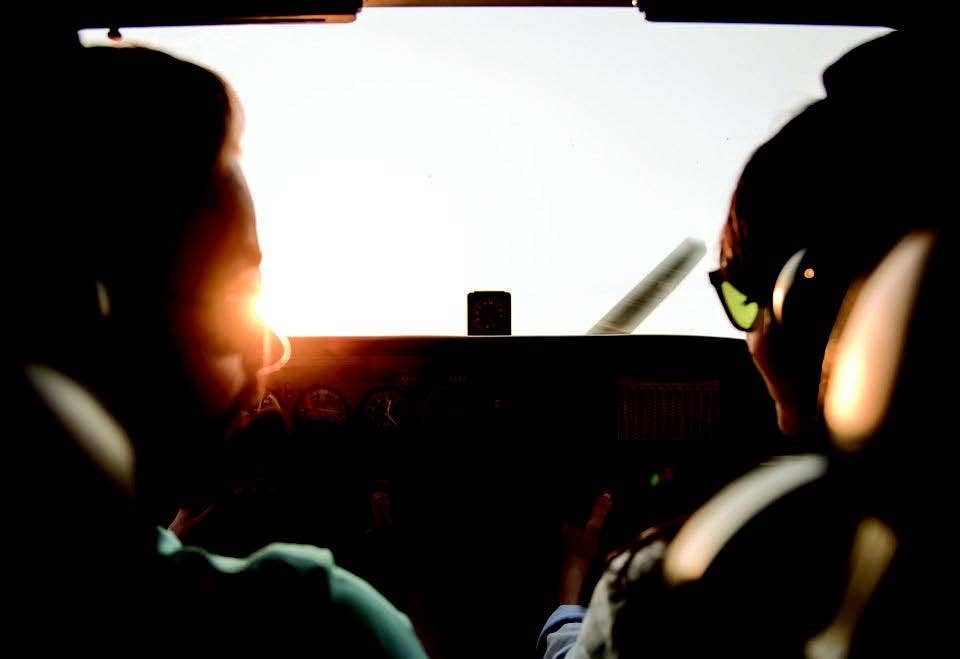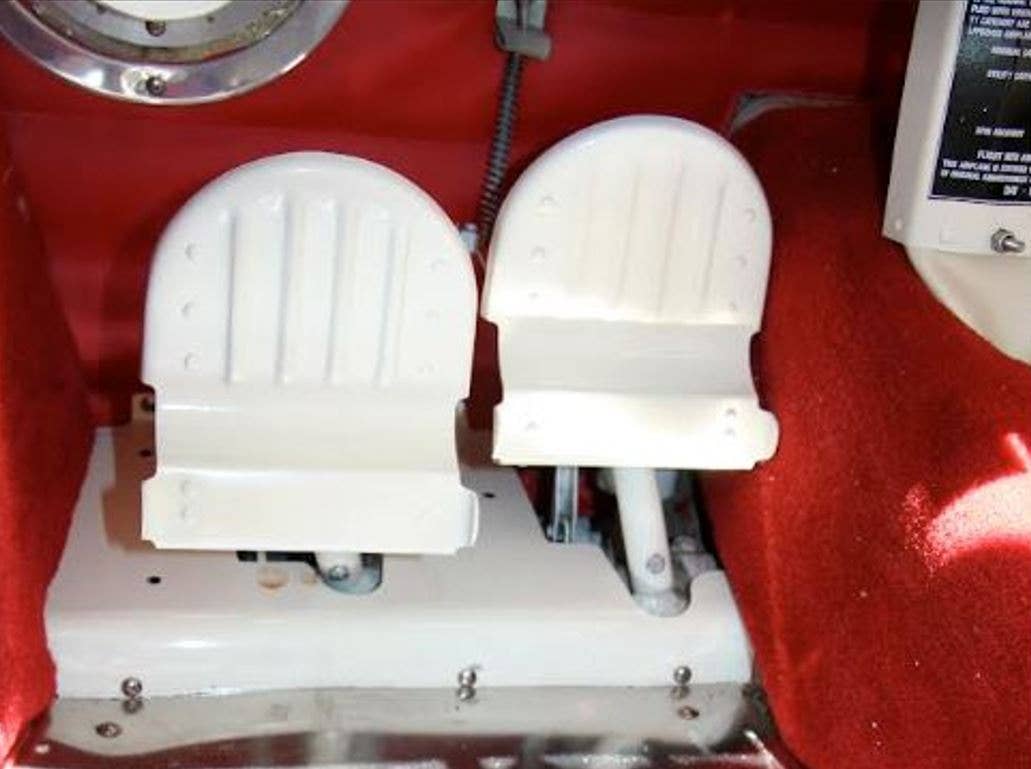
Mark Handley with his grandson Sam in Thailand during his circumnavigation. Courtesy Judy Handley
It is a beautiful night at 35,000 feet over the fields and sleeping towns of the American Midwest. A wispy undercast, dimly lit by the rising quarter moon, flits here and there, alternately hiding and revealing the glow of distant cities as we pass. There’s a healthy jet stream on our tail, a last vestige of rapidly retreating winter, and our groundspeed hovers around 530 knots. The captain has turned down the cockpit lights, a rarity on red-eye flights where the usual protocol is to leave all lights blazing in the interest of wakefulness, night vision be damned. The dimmed cockpit suits me just fine; it fits my mood, and the captain’s too, I think. The radio is mostly silent, and so are we. It’s just as well, because we have exhausted our store of shop talk and tall tales and line gossip over the last four days, and further conversation would inevitably devolve into ill-advised topics such as politics or religion. I pull my fleece sweater tightly around me and press my face against the heated windowpane.
A brightly lit cockpit is a universe unto itself, a self-contained capsule suspended in time and space, to be reanimated only upon return to the greater world. But here and now, dark and naked beneath the vast expanse of a million ageless stars, our true size and place and purpose is readily manifest.
Many airline pilots profess to hate domestic red-eye flights, bidding them only begrudgingly in the interest of more efficient trips or easier commutes. Not me. I love the peace and the silence, the time to really think, to appreciate where I am and what I'm doing. At this moment, there's quite honestly no place I would rather be—not even with Dawn and Piper aboard Windbird, now on a dock down in St. Lucia. I love my wife, mind you, and my dog, and the life we've built exploring the Caribbean under sail. But I'm a pilot; the need to fly is embedded in my DNA, and I'd bid an occasional trip even if there were no need to replenish the cruising kitty.
Conversely, if I didn’t enjoy it, I’d stop doing it. I’d earn my money some other way, through writing perhaps, or as a sailboat delivery skipper, or a daring cat burglar pulling off improbable jewel heists. I’ve seen too many people wasting away their lives doing things they don’t want to do, things that don’t even matter to them or anyone else. It’s no way to live.
You and I, and everyone around us, rich and poor, have one thing in common: Someday, each of us is going to die. Every person has a finite but unknown amount of time remaining on this Earth; it is our greatest gift and most priceless possession. I envision life as an hourglass—every minute that passes is a grain of sand that slips through. What remains at the end, when the last grain drops? If one has spent the allotted time well, peaceful last memories of a happy life and a proud legacy left behind for those who remain. But it is far too easy for the winds of life to scatter and waste the grains of time as they fall.
It takes effort and purpose to spend your time wisely, consciously, to live the very best life you can live.
I often think about Mark Handley, Windbird's previous owner. We never actually met; we emailed and spoke on the phone and made plans to sail together, but in the end I was too late, his cancer too aggressive. So I got to know Mark through his adult kids and grandchildren, his admiring friends and co-workers, his adventurous wife, Judy, and above all, the sturdy boat that he and Judy sailed around the world. Circumnavigating was a lifelong dream of Mark's, one that he shared with Judy on the night they met in 1973. Years passed, they had a family, and Mark built a successful career in public broadcasting.
When he turned 60, Judy told him: "If you still want to do this, the time is now, while we still have our health." So, Mark retired early, at the acme of his career—he was by then the chairman of National Public Radio—and he and Judy bought and refit Windbird and embarked on an epic six-year adventure. They completed their journey a mere two months before Mark was diagnosed with colon cancer.
That's not the end of the story, for this remarkable man continued to live aboard and cruise and maintain his boat for five additional years, all while undergoing treatment and fighting for his life. I thought about that often during our initial refit, when delays and costs mounted, and the projects never seemed to end. I imagined Mark at the helm on the first offshore leg of the circumnavigation, running before an unforecast North Atlantic December gale, Windbird surfing down great hulking greybeards with spray cascading over her bow and down her teak decks.
Cold, wet and tired, utterly vulnerable and utterly alive, Mark Handley was exactly where he chose to be, living his dream after years of hard work and sacrifice to make it happen. On the night he died, Judy told me, he was drifting in and out of consciousness and not making a lot of sense—but in his last murmurs, it was clear that he was still fixing and sailing Windbird.
Read More by Sam Weigel: Taking Wing
Sailing was Mark’s passion, as it has become mine. Because you’re reading this magazine, I suspect flying is your passion, as it is also mine. Merely knowing which things in life make you happiest is a true blessing, and a sadly rare one. Beyond flying and sailing, for me it is hitting the open road on my motorcycle, exploring distant lands, spending time with my closest friends and the company of my best friend, Dawn. Having realized this, I made some major changes to maximize these things in my life, and to minimize everything else—the distractions—to the greatest extent possible. This included selling our house, Dawn quitting her job, me dropping down to working half time, and both of us adopting a nomadic sea-gypsy existence that is sometimes uncomfortable or downright precarious. And it has been quite wonderful.
A bit extreme, you say? Perhaps. I’m aware that my philosophy of radical freedom is in direct conflict with any number of obligations that the average person must balance, and that my status as a childless airline pilot with an adventurous spouse makes it possible for me to do things that are much more difficult for others.
I’m not suggesting that you quit your job, divorce your spouse, abandon your kids, and empty their college fund to buy a Beaver on floats and run away to Alaska. But I would posit that too many people allow the inertia of life to carry them to the other extreme, and most could benefit from an occasional rebalancing.
Here’s my challenge to you: Consider the thing or things that bring you the most joy in life—flying, for example. Ask yourself what changes you could make to increase the amount of time you spend doing the things that make you happy, while decreasing the obligations and distractions that are currently limiting you. After close analysis, you might find yourself coming up against hard limits you can’t simply get around—but in many cases you’ll be able to find creative ways to minimize or eliminate them, or better yet, integrate them into the pursuit of your passions.
The glow of my airline's hometown starts to appear over the horizon while we're 150 miles out, and I enjoy the last few minutes of what will likely be my last flight for the next seven weeks. My landing currency newly reset, Dawn and I are headed south from St. Lucia to explore the remote islands of St. Vincent and the Grenadines. I reckon we have enough cash to keep Windbird stocked with rum, provisions and doggie kibble till I fly again.
After that, I don’t worry about much. I figure that whenever my hourglass runs out, if I can finish this life with a head full of good memories, an unbroken spirit, and just enough money to buy a few boards and a couple of gallons of gasoline for my best friends to send me off with a roaring Viking funeral—well, that’ll be just about perfect.

Subscribe to Our Newsletter
Get the latest FLYING stories delivered directly to your inbox

